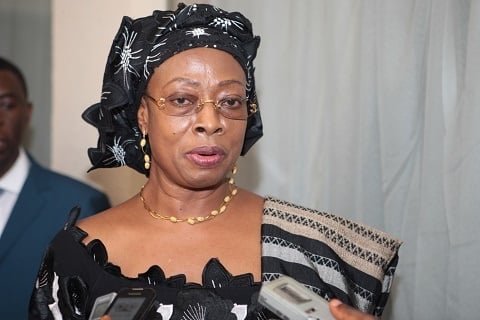Justice Sophia Akuffo’s appointment to the Council of State has ignited a spark of hope for enhanced independent oversight of presidential decisions in Ghana. Her public assurance of providing candid and impartial advice to President John Dramani Mahama underscores a commitment to fulfilling the council’s constitutional mandate without succumbing to political pressure or the temptation to merely echo the president’s views. Her explicit statement, “I am not going to be singing his master’s voice,” reflects a determination to uphold the council’s advisory role with integrity and a focus on the broader interests of the nation. This stance is particularly significant given the historical perception of the Council of State as a body that often rubber-stamps presidential decrees, a perception Akuffo’s presence seeks to challenge.
Akuffo’s background as a former Chief Justice further strengthens the expectation of impactful contributions to the council’s deliberations. Her profound legal expertise and years of experience at the pinnacle of Ghana’s judicial system equip her with a unique perspective on constitutional matters, legal frameworks, and the intricacies of governance. This experience is invaluable in providing well-informed advice to the president, particularly on complex legal and policy issues that require nuanced understanding and interpretation. Her understanding of the separation of powers and the importance of checks and balances within the government structure will likely inform her approach to advising the president, ensuring that recommendations are grounded in legal principles and constitutional safeguards.
The Council of State plays a crucial role in Ghana’s governance framework, acting as an advisory body to the president on a wide range of critical issues. Its responsibilities encompass offering counsel on bills, appointments, treaties, and numerous other policy matters. The council’s effectiveness hinges on its ability to provide unbiased, expert advice, free from political influence or personal agendas. Akuffo’s commitment to independence aligns perfectly with this crucial function, reinforcing the council’s role as a vital check on executive power and a champion for sound governance.
However, the effectiveness of individual members, even those with impeccable integrity and expertise like Justice Akuffo, is intertwined with the overall dynamics and operational structure of the Council of State. The composition of the council, the processes by which it conducts its deliberations, and the extent to which its advice is genuinely considered by the president are all factors that influence its impact. While Akuffo’s presence promises a strong voice of reason and independent judgment, the council’s overall effectiveness depends on fostering an environment where diverse viewpoints are valued, robust debate is encouraged, and ultimately, where the president demonstrably considers the council’s recommendations.
Furthermore, public perception of the Council of State remains a critical factor in its legitimacy and effectiveness. Overcoming the prevailing image of the council as a rubber stamp requires not just the individual integrity of its members, but also a concerted effort towards transparency and open communication with the public. Demonstrating that the council engages in thorough deliberations, considers diverse perspectives, and offers candid advice to the president, even when it differs from the executive’s position, is essential to building public trust and strengthening the council’s standing as a vital institution of governance. Justice Akuffo’s public commitment to independence is a positive step towards reshaping this perception, but it must be accompanied by institutional changes that ensure transparency and accountability.
In conclusion, Justice Sophia Akuffo’s appointment to the Council of State brings a renewed focus on the council’s crucial role in providing independent oversight and expert guidance to the president. Her stated commitment to honesty, integrity, and independent judgment offers a promising prospect for enhanced governance in Ghana. However, the true impact of her contributions will depend on the broader dynamics within the council, the extent to which its recommendations are considered by the executive branch, and the council’s success in fostering public trust and demonstrating its commitment to transparent and accountable operation. Her appointment is undoubtedly a positive development, but it is a single step in the ongoing journey towards strengthening Ghana’s democratic institutions and ensuring effective governance.


